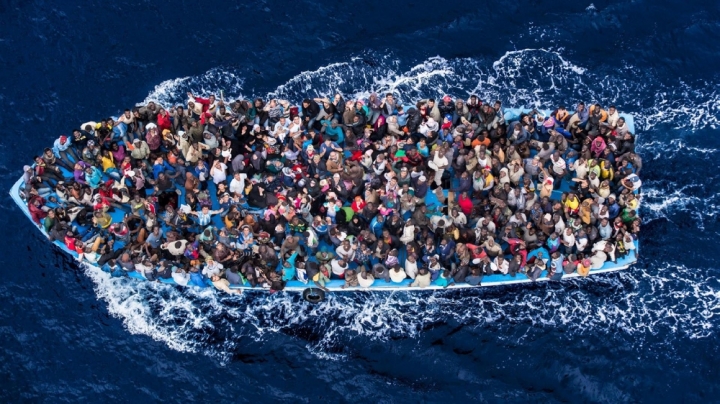- Mediterranean Hope - Federazione delle chiese evangeliche in Italia
- mh@fcei.it
Humanitarian corridors. Aquilante: Satisfactory results. But political decisions are needed
Rome (NEV), 27 May 2015 – At the end of the mission in Morocco of 20 to 27 May, the president of the Federation of Evangelical Churches in Italy (FCEI), Pastor Massimo Aquilante, reflects on the experience. On his return to Italy, President Aquilante said that the mission was successful. Moroccan institutions and associations encouraged us to proceed, as did ACNUR and our Embassy. The preliminary plans were completed with this mission, and over the summer we hope to set up a working group in Tangier in close collaboration with the local diocese. This desk will serve to collect and assess the visa applications for humanitarian protection, the granting of which depends on a political decision that we are working on with all our strength. We have already contacted the Ministry of the Interior and Foreign Affairs and it has shown some interest which has yet to be translated into a political and operational decision. To back-up our request we are meeting with EU authorities to explain the purpose and methods for achieving this good practice. In all this, we are receiving valuable support from various European churches, in particular those in Germany, Austria and the Netherlands. This is a sign of another Europe that is able to discuss immigration even in terms of human rights and solidarity. The human corridor project is promoted and created by the FCEI as part of its Mediterranean Hope program and by the Community of Sant’Egidio. The Mediterranean Hope project was launched a year ago and includes an Observatory on Mediterranean Migration in Lampedusa, the Reception Centre “House of Cultures” in Scicli (RG), and a relocation desk to help migrants insert themselves in Italy or other European countries. Most of the funds needed to develop the human corridor project have been guaranteed by “8 x 1000” system of the Waldensian Church (Union of Waldensian and Methodist Churches); other contributions come from the Community of Sant’Egidio and from various foreign churches.





